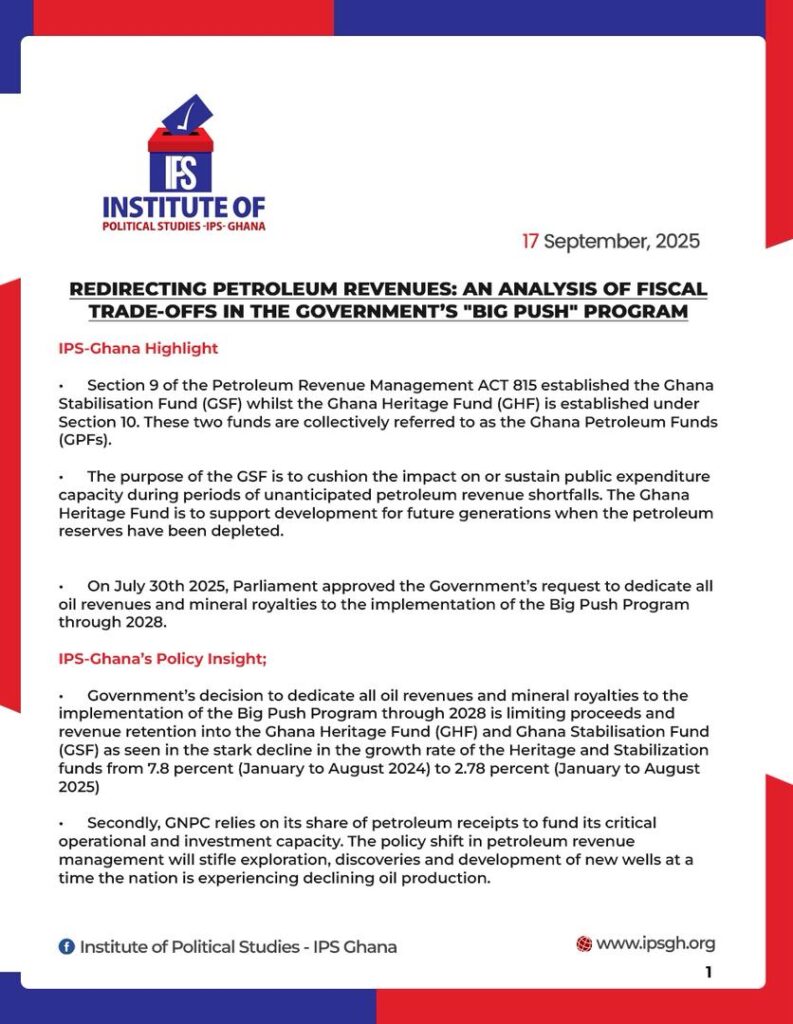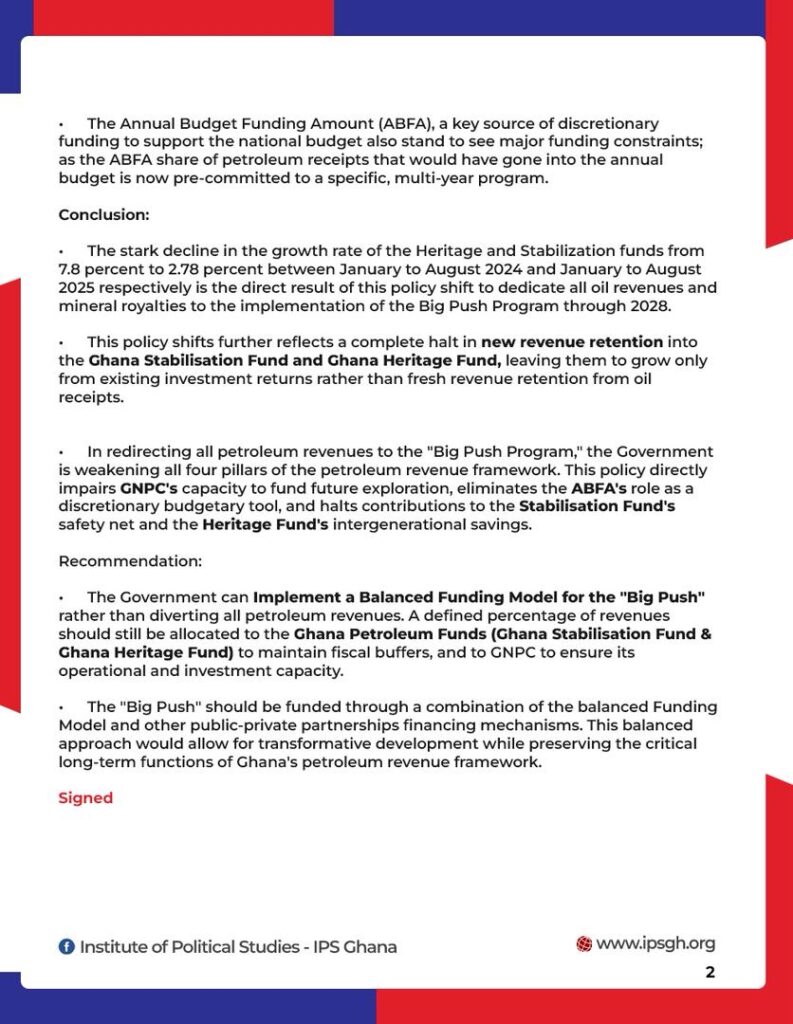A new policy insight from the Institute for Policy Studies (IPS-Ghana) has raised red flags over government’s decision to channel all petroleum revenues and mineral royalties into its ambitious “Big Push Program” through 2028.
Parliament on July 30 approved the request, effectively suspending contributions to the Ghana Petroleum Funds (GPFs) – the Ghana Stabilisation Fund (GSF) and the Ghana Heritage Fund (GHF), both of which were created under the Petroleum Revenue Management Act, 2011 (Act 815) to serve as fiscal buffers and intergenerational savings vehicles.
IPS-Ghana warns that the policy shift is already taking a toll on the country’s petroleum revenue framework. Between January and August 2025, the growth rate of the Heritage and Stabilisation funds dropped sharply to 2.78 percent, compared with 7.8 percent over the same period in 2024.
“This decline reflects a complete halt in new revenue retention into the funds, leaving them to grow only from existing investment returns rather than fresh inflows from oil receipts,” the policy note stated.
Beyond weakening fiscal buffers, IPS-Ghana cautioned that the reallocation undermines all four pillars of Ghana’s petroleum revenue framework. The Ghana National Petroleum Corporation (GNPC), which depends on its share of petroleum receipts to finance exploration and new well development, will face funding shortfalls at a time when national oil production is already declining.
The Annual Budget Funding Amount (ABFA), another key source of discretionary resources for the national budget, also risks being sidelined, as its share of petroleum receipts has now been pre-committed to the multi-year “Big Push” program.
“This policy directly impairs GNPC’s capacity to fund future exploration, eliminates the ABFA’s role as a discretionary budgetary tool, and halts contributions to the Stabilisation Fund’s safety net and the Heritage Fund’s intergenerational savings,” IPS-Ghana stressed.
Balanced Approach Recommended
IPS-Ghana is urging government to reconsider its approach by adopting a Balanced Funding Model. Under this arrangement, a defined percentage of petroleum revenues would still flow into the Ghana Petroleum Funds and GNPC, while the “Big Push” is financed partly through these revenues and complemented by public-private partnership mechanisms.
“A balanced approach would allow for transformative development while preserving the critical long-term functions of Ghana’s petroleum revenue framework,” the institute recommended.
The “Big Push Program” is a flagship initiative of the government aimed at accelerating infrastructure investment and industrial transformation. However, with Ghana’s oil reserves finite and production volumes already under pressure, analysts warn that prioritising short-term development at the expense of future fiscal sustainability could create deeper economic vulnerabilities.
The statement :



